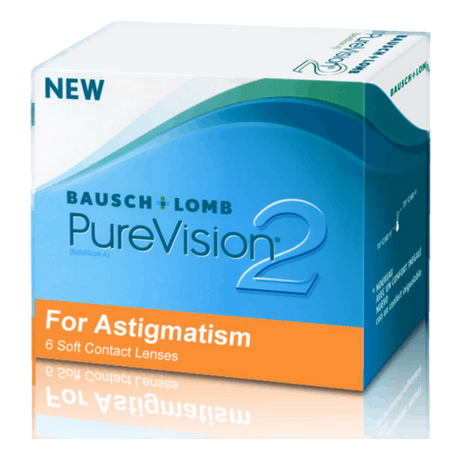What is Astigmatism?
Astigmatism is a common vision impairment caused by an uneven cornea or lens in the eye. Normally, the cornea and lens are evenly rounded, but with astigmatism, they are more oval or cone-shaped. This causes light entering the eye to refract incorrectly, leading to blurred or distorted vision at both near and far distances.
Astigmatism can occur alongside other refractive errors such as nearsightedness (myopia) and farsightedness (hyperopia). The condition is congenital or develops during childhood and can worsen over time. Symptoms of astigmatism include:
- Blurred vision at all distances
- Headaches
- Eye strain
- Difficulty seeing at night
- Need to squint to see more clearly
Can You Wear Contact Lenses with Astigmatism?
Yes, there are special contact lenses designed to correct astigmatism. These lenses are called toric lenses and have a unique design that takes into account the uneven shape of the cornea. Toric lenses have different powers and axes to provide clear vision in all directions.
Finding the right toric lenses may require a bit more time and patience compared to regular spherical lenses. Your eye care professional will perform a thorough examination of your eyes to determine the degree of astigmatism and determine the best lens power and axis for you. It may take several trials to find the optimal fit and correction.
Types of Toric Contact Lenses
There are several types of toric contact lenses to choose from depending on your needs and preferences:
Soft Toric Lenses
Soft toric lenses are made of flexible, oxygen-permeable materials that conform to the shape of the eye. They are comfortable to wear and are available in both daily and monthly disposable options. Soft toric lenses are suitable for most degrees of astigmatism.
Rigid Gas Permeable (RGP) Toric Lenses
RGP toric lenses are made of a rigid, oxygen-permeable material. They provide sharp vision and are durable but may require a longer adaptation period compared to soft lenses. RGP toric lenses are often a good choice for higher degrees of astigmatism or irregular corneas.
Hybrid Lenses
Hybrid lenses combine the benefits of both soft and RGP lenses. They have a rigid central zone to provide sharp vision and a soft outer zone for increased comfort. Hybrid lenses can be an alternative for people who are not satisfied with soft or RGP lenses.
Tips for Wearing Toric Contact Lenses
Wearing toric contact lenses may require a little extra care and attention compared to regular spherical lenses. Here are some tips for a comfortable and problem-free lens-wearing experience:
- Always follow your eye care professional's instructions for handling, cleaning, and replacing the lenses.
- Ensure the lenses are sitting correctly on your eyes. Toric lenses have markings that help you place them properly.
- Practice good hand hygiene when inserting and removing lenses to avoid infections.
- Use the lens solution recommended by your eye care professional and replace the lens case regularly.
- Attend regular check-ups with your eye care professional to monitor eye health and lens fit.
Alternatives to Contact Lenses for Astigmatism
While toric contact lenses are an excellent choice for many people with astigmatism, there are other options to consider:
Eyeglasses
Eyeglasses with cylindrical lenses can effectively correct astigmatism. They are easy to use and require less maintenance compared to contact lenses. Eyeglasses also provide extra protection for the eyes against UV radiation and injuries.
Refractive Surgery
Refractive surgery, such as LASIK and PRK, may be an option for some individuals with astigmatism. These procedures reshape the cornea to permanently correct the refractive error. Your eye doctor can assess whether you are a suitable candidate for refractive surgery.
Regardless of which option you choose, it is essential to work with your eye care professional to find the best solution for your individual needs. With the right correction and care, you can enjoy clear and comfortable vision despite astigmatism.

